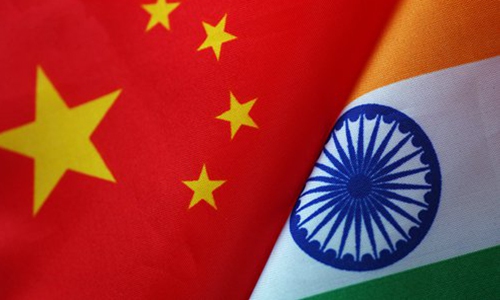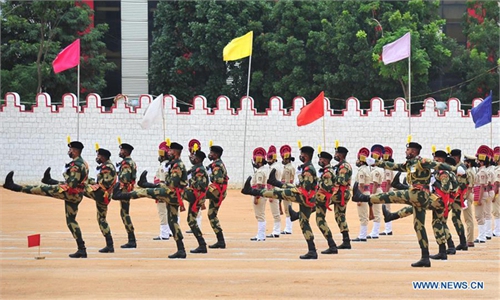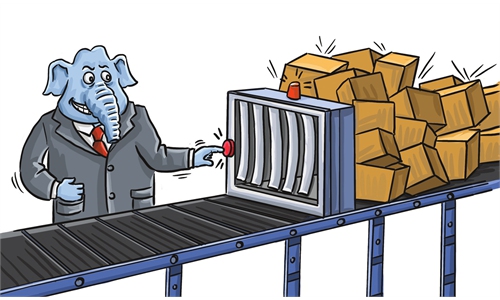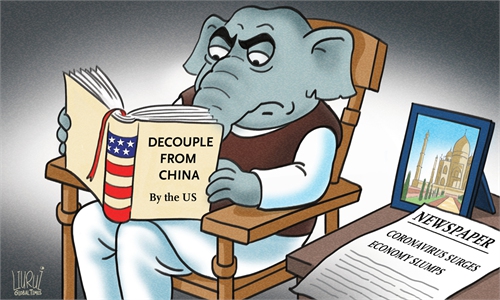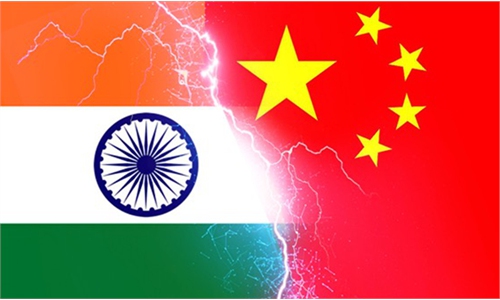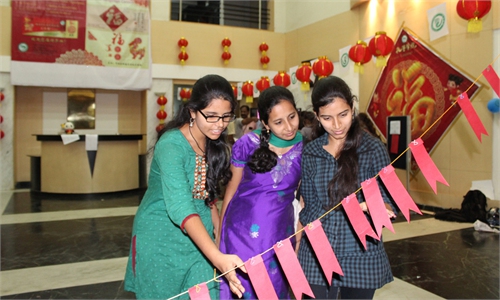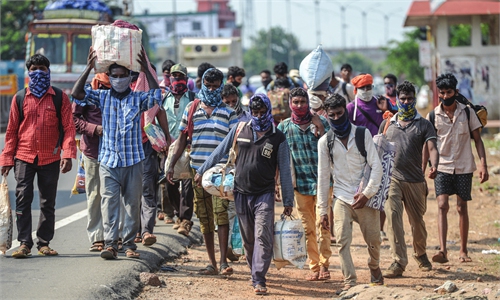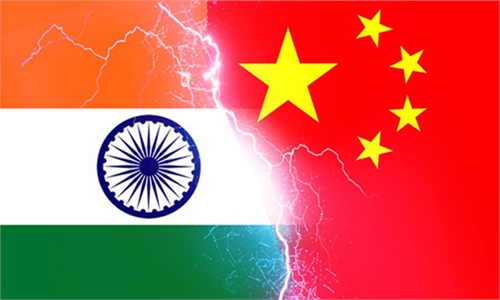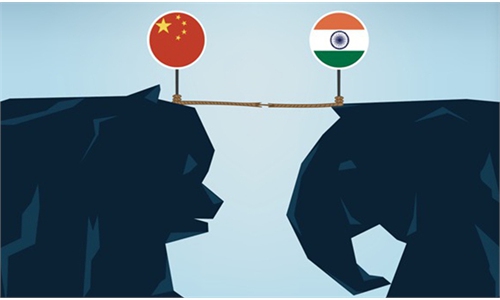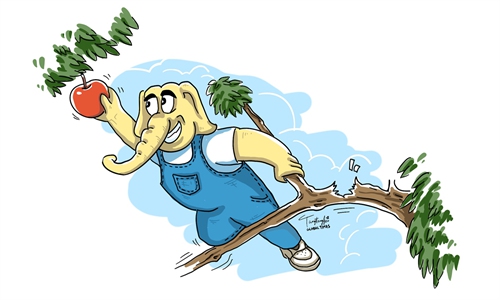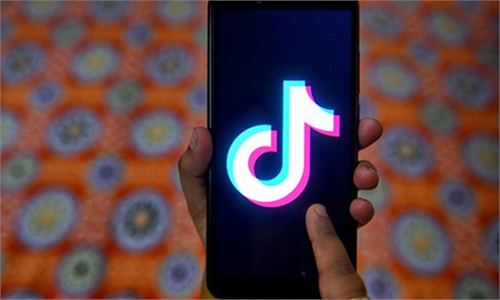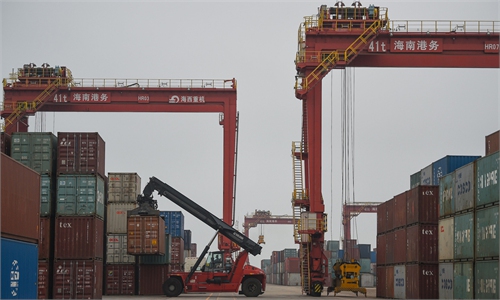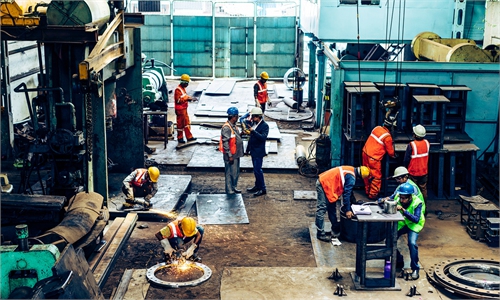Cyber bullies threaten friendly Sino-Indian voice
Several people in India who were interviewed by Global Times have asked the newspaper to delete reports that told of their hopes for improved China-India relations saying they received death threats from Indian netizens.
Tough military posture no cure for India's domestic woes
India should focus more on battling the epidemic, ensure economic growth, and stave off unemployment. India may take a tough stance to divert attention of its people. In this context of crises, it is impossible for India to engage in a military conflict or risk a war.
India's narrowing trade deficit with China is unsustainable
In recent months, India has seen its trade deficit with China fall and then bounce back, demonstrating that any manufactured reduction in the trade deficit based on protectionism simply isn't sustainable, despite being the result Indian authorities are longing for.
For US and India, it is never too late to learn from Wuhan
A summertime electronic music concert recently held in a Wuhan pool, featuring hundreds of young party-goers reveling, singing and dancing, shoulder-to-shoulder and without wearing facemasks, has amused many across the world. The scene also begrudges many overseas as their countries are still in the midst of battling the novel coronavirus.
Belligerent Indian scholar's anti-China suggestions hurt India's interests
The political correctness on anti-China positions is further suffocating dissenting ideas and on many issues, scholars will conveniently turn themselves into China experts, while not having a genuine understanding of China. Some of them even don't bother to travel to China and their perceptions on China stop at imagination.
India's major power dreams wrecked by attacking China
By jeopardizing relations with China, India will only make its road to become a major power bumpier.
India's sensitivity to China trade policies is rooted in historical trauma
The Modi administration's current boycott of Chinese goods is a deliberate protectionist trade policy which is deeply rooted in India's prolonged sensitiveness toward international trade.
Copying US' China bashing tactic, India invites trouble
Now all political forces in India have agreed to devalue India-China relations and they are both falling into a competition over who's better at playing tough on China-related issues.
Friendly NGOs strive to boost people-to-people exchanges to ease tensions
Border clashes in June and the subsequent Indian government ban on several Chinese mobile apps have cast a shroud of uncertainty over China-India relations, but some nongovernmental organizations in the two countries reached by the Global Times said they are working hard to ease and improve relations between Chinese and Indians.
India's Chinese culture enthusiasts to suffer 'decoupling' brunt amid Confucius institutes review: observer
Border clashes in June and the subsequent Indian government ban on several Chinese mobile apps have cast a shroud of uncertainty over China-India relations, but some nongovernmental organizations in the two countries reached by the Global Times said they are working hard to ease and improve relations between Chinese and Indians.
What do India's restrictions on Confucius Institutes show?
India closely follows the US in its China policy, and has even surpassed the US in some areas. India has taken the initiative to stand at the forefront of the so-called international anti-China campaign to contain and challenge China. China should not only pay close attention to such a tendency, but also resolutely counter it.
India's hard-line attempt to politicize Confucius Institutes will backfire
India's decision to review the Confucius Institutes is in fact an act to politicize education and people-to-people exchanges. It will negatively affect the mutual trust between the Chinese and Indian societies as well as the political trust between the two governments.
Decoupling self-defeating move for Indian economy
Ever since the June 15 China-India border brawl, authorities and militaries on both sides have been striving to calm tensions via diplomatic channels and mechanisms to resolve border-related issues.
Chinese and South Asian NGOs oppose COVID-19 politicization
Some NGOs in South Asia and China are standing up against politicization and stigmatization of the COVID-19 pandemic and are calling for a joint effort in the virus fight, at a time when some Western politicians are utilizing the pandemic to attack other countries for political ends.
Indian app users, influencers baffled, hurt by ban of China's TikTok, WeChat
The Indian government's sudden decision to ban 59 apps from China, including the widely used TikTok and WeChat, has caught millions of users across India by surprise, depriving them of one of this year's most popular tools for recreation and education, and even incurring economic losses to those who make a living on the platforms.
India 'holds' Chinese goods from clearance, to backfire and hurt global industrial chains: expert
India is reportedly putting some containers from China on hold during clearance for all-round inspection and scrutiny amid the recent stand-off between the two nations, following a fatal border clash. It is a stupid choice which will backfire and hurt global industrial chains, a Chinese expert said.
GT investigation: Can India's fragile economy survive its own 'boycott China' campaign?
Since the deadly clash between Chinese and Indian troops in the Galwan Valley on June 15, hyper-nationalism appear to have taken over India, where calls for boycotting Chinese products and footage of Indian citizens destroying TV set have been dominating social media. In China, very few take those calls and actions seriously, with some saying India waging a trade war with China is like throwing an egg at a rock. Still, to help Indian nationalists and their followers better understand the potentially devastating consequences of their words and deeds on the already fragile Indian economy as well as India's poor, the following is a GT investigation into four areas of the Indian economy where Chinese involvement is simply irreplaceable.
'Boycott China' T-shirts and caps in India were not made in China: insiders
Online gossip has been spreading that some Chinese manufacturers have been caught selling hats, tees, and banners with anti-China slogans such as “Boycott China” to India; however, this is very likely faked, the Global Times found.
